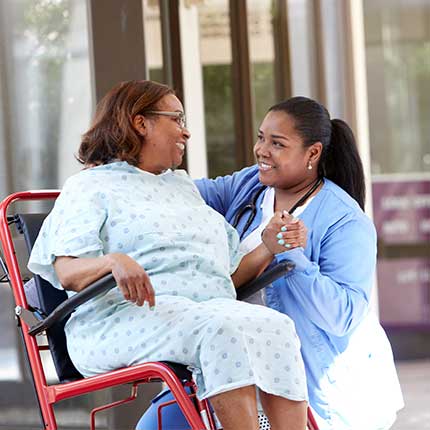Healthy Living
Help for Your Aching Back: Tips to Feel Better & When to Seek Therapy
Do you have an aching back? You’re not alone. Approximately 80 percent of adults experience some form of low back pain at some point in their life. Back pain can begin abruptly, resulting from an accident or by lifting something heavy, or pain can develop over time due to age-related factors. Pain can be acute or short-term, lasting a few days to a few weeks. It can also be chronic, which is defined as pain that persists for 12 weeks or longer. So what steps can you take to reduce your back ache, and how do you know when you should seek treatment?
Tips for Helping Reduce Back Pain
The following are a few things you can try to help relieve your aching back or prevent pain from coming back.
- Stretch – Stretching your back muscles can often relieve or eliminate the pain. There are numerous stretches you can do to ease back pain. Search online or ask your doctor for specific exercises.
- Aquatic exercise –Therapeutic aquatic exercise can be a low-impact way to ease back pain and help you move better.
- Lose weight – Losing excess weight can have a significant impact on reducing or eliminating back pain because extra weight puts a strain on joints and skeletal structure.
- Strengthen your core – Abdominal and back muscle exercise help strengthen your core muscles. Conditioning and strengthening these muscles helps them work together to support your spine and act like a natural corset for your back.
- De-stress – Whether it’s meditating, practicing yoga, getting a massage, engaging in tai chi or something else, find the technique that works best for you to relax. Studies show that stress can be a contributing factor to back pain.
- Correct your posture – Maintaining the normal curve of the spine is key to recovering from acute low back pain. Your lower back can support your weight most easily when the curvature is reduced. Maintaining a correct posture can help alleviate and/or prevent low back pain. Being in an unusual position for a long period of time (such as sitting or sleeping improperly) can make back pain worse. So be sure to maintain proper posture as much as possible.
When Should You Go See a Doctor?
The majority of back pain gradually improves with home treatment and self-care, usually within a few weeks. If pain gets worse or doesn’t improve within three weeks, call your doctor. Other reasons to see your doctor include:
- Difficulty going to the bathroom
- Numbness or tingling in your groin, rectum, leg or foot
- Pain caused by an injury, such as a car accident
- Intense pain that makes it difficult to move
- Nausea, vomiting, fever, chills or weakness
- Pain that shoots down your leg below your knee



